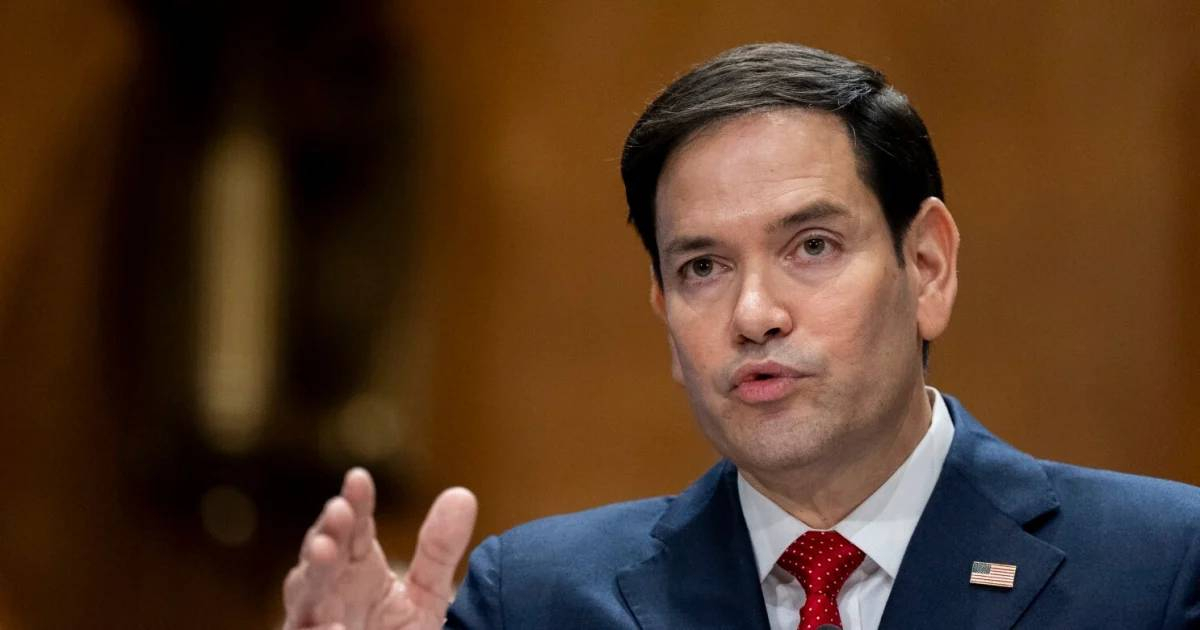The United States Department of State has directed its embassies and consulates not to revoke visas previously granted to individuals from 12 countries impacted by President Donald Trump's new travel ban. Scheduled to take effect on June 9, the ban will not apply to those who already hold visas issued before this date, according to a diplomatic cable sent last Friday by Secretary of State Marco Rubio.
The cable, acquired by The Associated Press, specifies that "no action should be taken regarding visas already issued that have left the consular section" and that "no visa issued before the effective date should be revoked under this proclamation." This means that individuals with valid visas will be able to enter the United States without issue, even after the new restrictions are implemented.
However, the directive also states that visa applications that have been approved but not yet issued will be canceled, and future applications will be denied unless the applicant meets the stringent criteria for an exemption from the ban. Starting Monday, applicants from the affected nations will face a more rigorous process to obtain a visa, and those failing to meet the exemption requirements will see their applications rejected.
Countries Facing New Visa Restrictions
The countries affected by this new policy include Afghanistan, Myanmar, Chad, Republic of the Congo, Equatorial Guinea, Eritrea, Haiti, Iran, Libya, Somalia, Sudan, and Yemen. Additionally, other visa restrictions will apply to citizens of Burundi, Cuba, Laos, Sierra Leone, Togo, Turkmenistan, and Venezuela. The diplomatic cable signed by Rubio also emphasizes that the ban only impacts individuals who are outside the United States on the effective date and do not possess a valid visa.
Role of Homeland Security in Visa Admission
It's crucial to highlight that the Department of State has clarified that admission or denial of entry into the U.S. at a port of entry is managed by the Department of Homeland Security and the Customs and Border Protection (CBP). They will determine whether visa holders can enter the country.
Exceptions and Special Exemptions Under the Ban
Despite the restrictions, certain exceptions will apply. For instance, specific measures have been established for Afghan nationals, and a list of exemptions based on national security is anticipated. Moreover, it's expected that foreign visitors planning to attend international events such as the 2026 World Cup and the 2028 Los Angeles Olympics will not be subject to the same restrictions.
This new policy is part of a broader context of visa restrictions implemented by the Trump administration. In May, Rubio also announced a policy aimed at restricting visas for officials and foreign citizens who assist in censoring Americans. According to the secretary, the measure aims to prevent those who work to undermine the rights of American citizens, whether in Latin America, Europe, or elsewhere, from benefiting from U.S. immigration privileges.
President Trump has indicated that the list of affected countries could be expanded based on emerging threats worldwide, leaving open the possibility that other nations may face similar restrictions in the future.
Understanding the U.S. Travel Ban Impact
Who is affected by the new U.S. travel ban?
The travel ban affects individuals from 12 countries including Afghanistan, Myanmar, Chad, and others. Additionally, citizens from Burundi, Cuba, Laos, and several more will face new visa restrictions.
Can those with valid visas still enter the U.S.?
Yes, individuals holding valid visas issued before the effective date of the ban can enter the U.S. without issue.
Will there be any exceptions to the travel ban?
Yes, there will be exceptions for certain individuals, including specific measures for Afghan nationals and potential exemptions for international event attendees.
